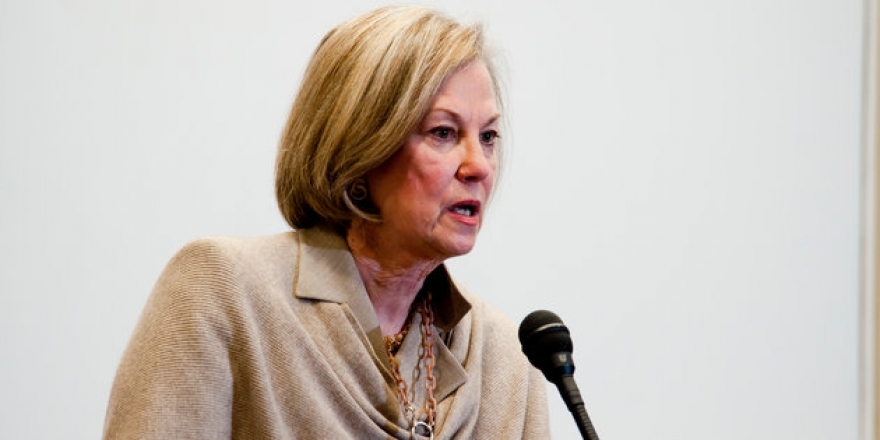Karen Elliott House Presents Licata Lecture on Saudi Arabia
Pepperdine Magazine is the feature magazine for Pepperdine University and its growing community of alumni, students, faculty, staff, and friends.
When people ask Karen Elliott House why she traveled to Saudi Arabia year after year
for five years, draped in a long black abaya, with a limited- access visa, she replies, “Because it’s interesting.”
For more than 30 years, this “interest” drove the Pulitzer Prize-winning journalist
to investigate Saudi Arabia and all facets of life in the shrouded kingdom. On February
12, on the occasion of the 2013 Charles and Rosemary Licata Lecture hosted by the
School of Public Policy, the former publisher of The Wall Street Journal visited Pepperdine’s
Drescher Graduate Campus to speak about her experiences in the Middle East and deconstruct
her book, On Saudi Arabia: Its People, Past, Religion, Fault Lines–and Future.
“Saudi Arabia is the strangest country you will never see,” began House, as she took
the audience on a journey through her encounters with Saudi royalty, religious officials,
and families devoted to Islam. As a Western woman—considered an honorary man by Muslims
who would otherwise be forbidden from being in the presence of a female—House was
at an advantage and given access to areas of the kingdom without a government minder.
After three decades of tireless exploration into the Saudi soul and psyche, she was
granted a five-year, multiple-entry visa.
“My goal was not to prescribe what Saudi Arabia ought to be like, but to try to understand
and describe what it was like,” she explained, before she delved into her “observations
about Saudi society, about what those observations might portend about its stability
or vulnerability, and about scenarios that U.S. policymakers might face in the future.”
In the James R. Wilburn Auditorium, House, who also served as the 2013 School of Public
Policy commencement speaker, informed a captive audience of the religious, socioeconomic,
and geopolitical strife faced by both the nation’s young and old populations. “Even
though many say there has to be change, they don’t agree on what that is,” she laments,
delineating the four options she foresees for the future of Saudi Arabia: 1) further
economic stagnation and stultification, 2) the rise of a younger prince that tries
to revive the economy in the face of oppressive conservative, religious backlash,
3) a leader who reverts to the Islamic religiosity of the 80s and 90s, or 4) chaos
that leads to collapse.
“Young Saudis increasingly question why they can’t have more and why the royals take
more than they deserve,” she explains. “It is a quite constricted society and much
more divided than I realized.”
The Licata Lecture Series was established through an endowment for the School of Public
Policy by benefactors Charles and Rosemary Licata. The series unites students, alumni,
and community leaders with leading academics and practitioners shaping policy matters
in the new century.
Watch Karen Elliott House’s Licata Lecture: magazine.pepperdine.edu/house-lecture
